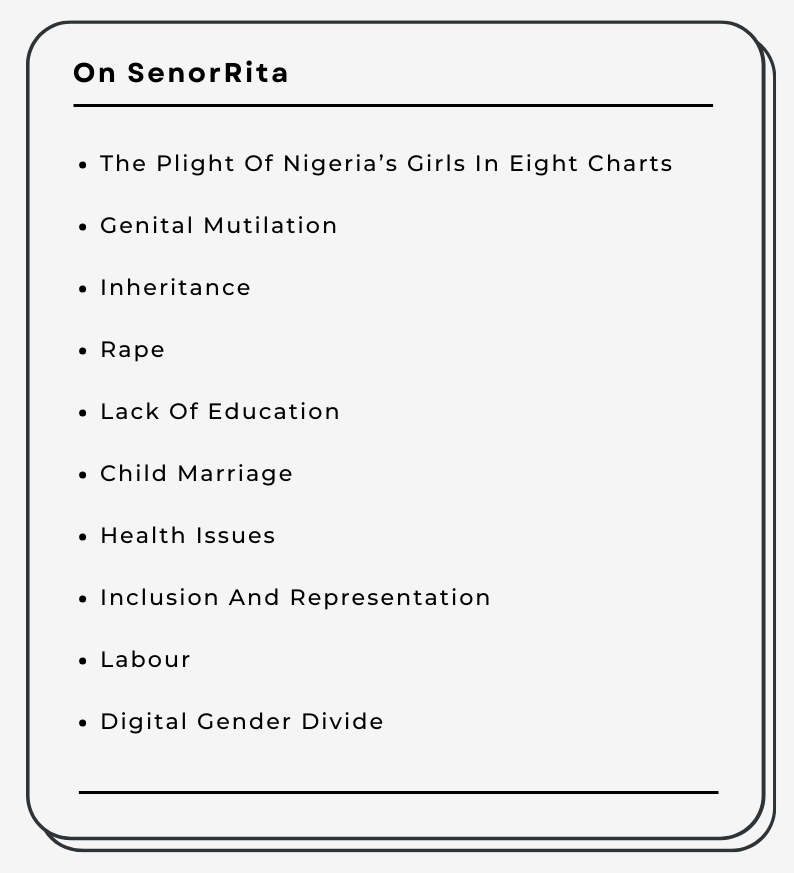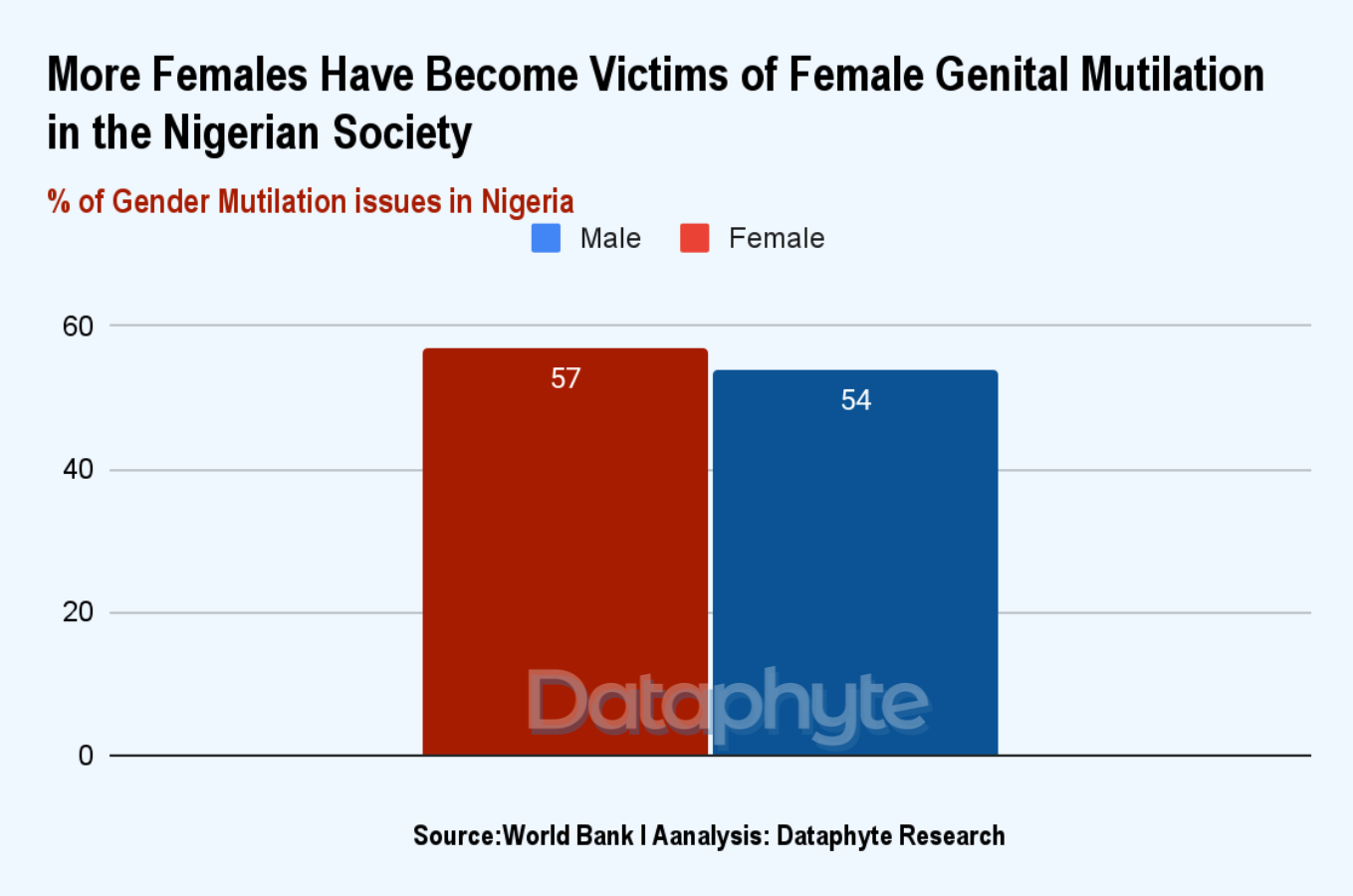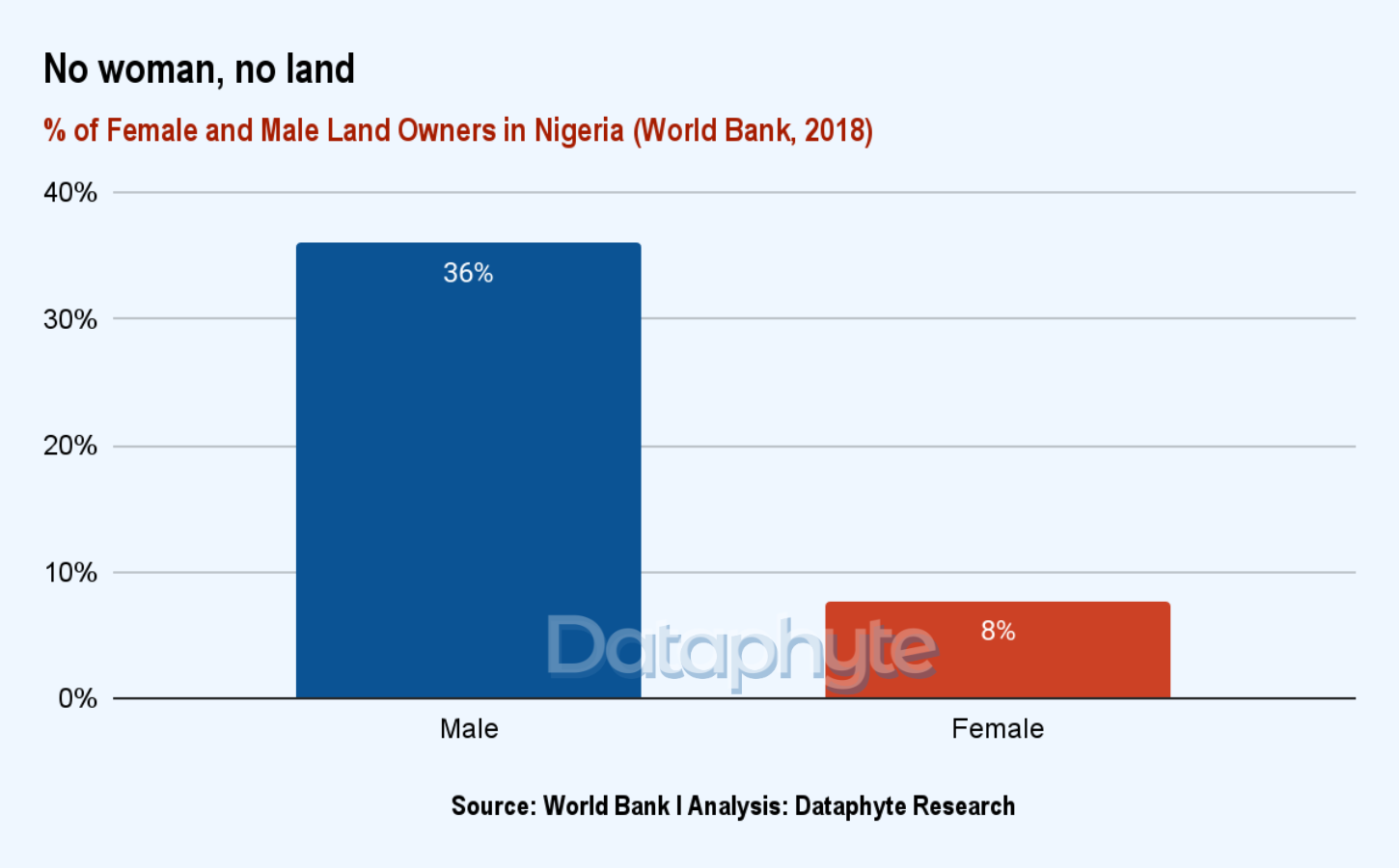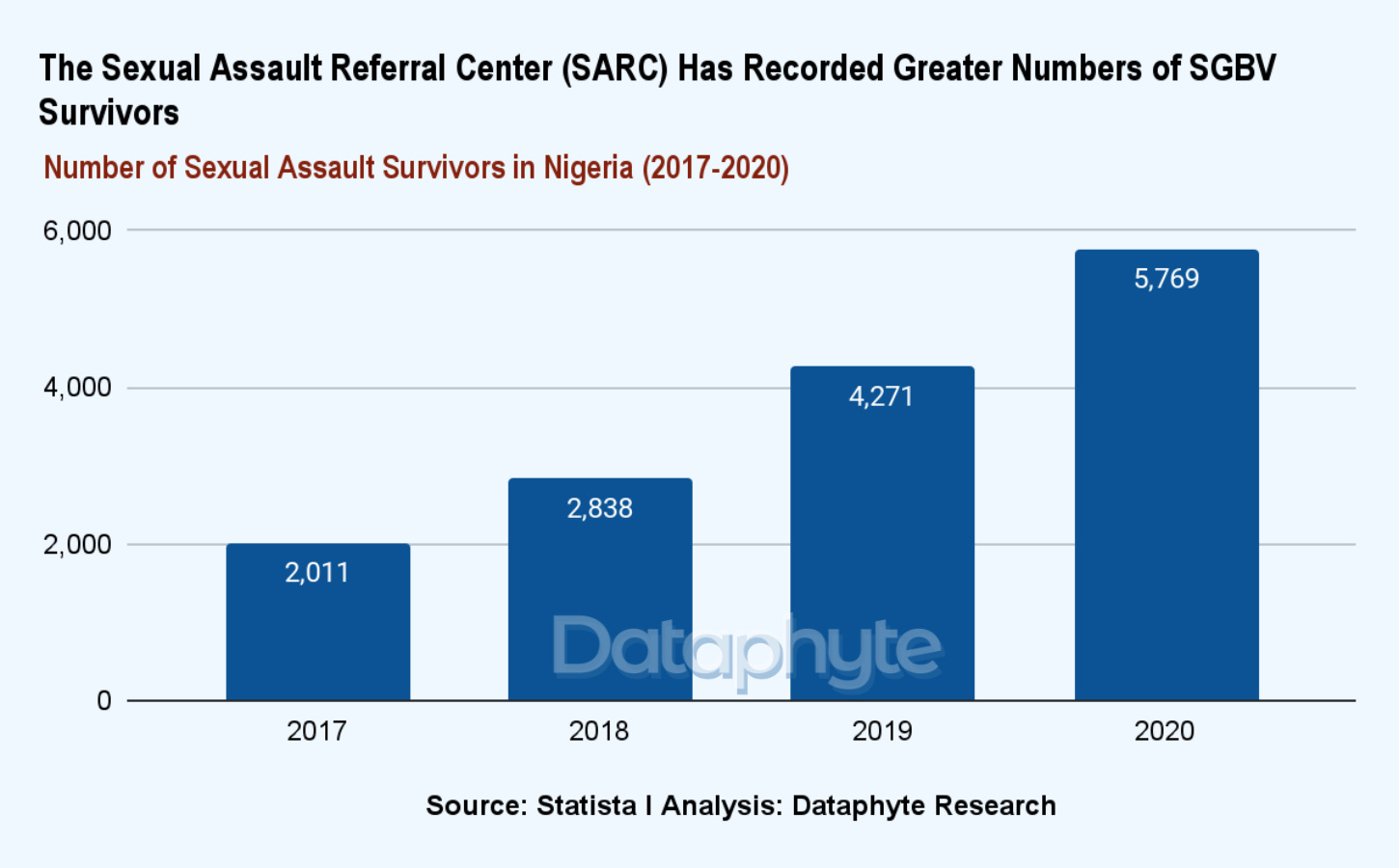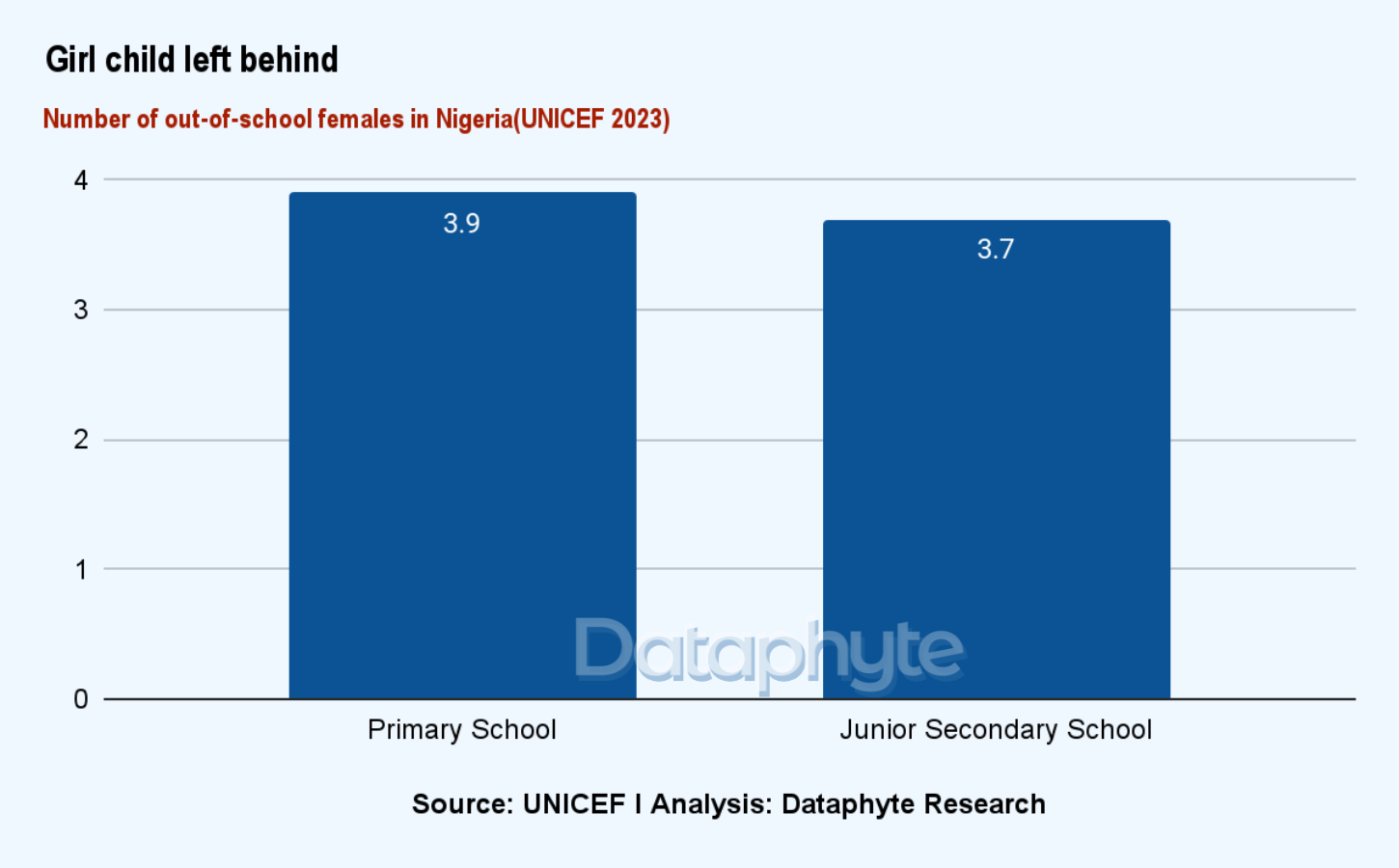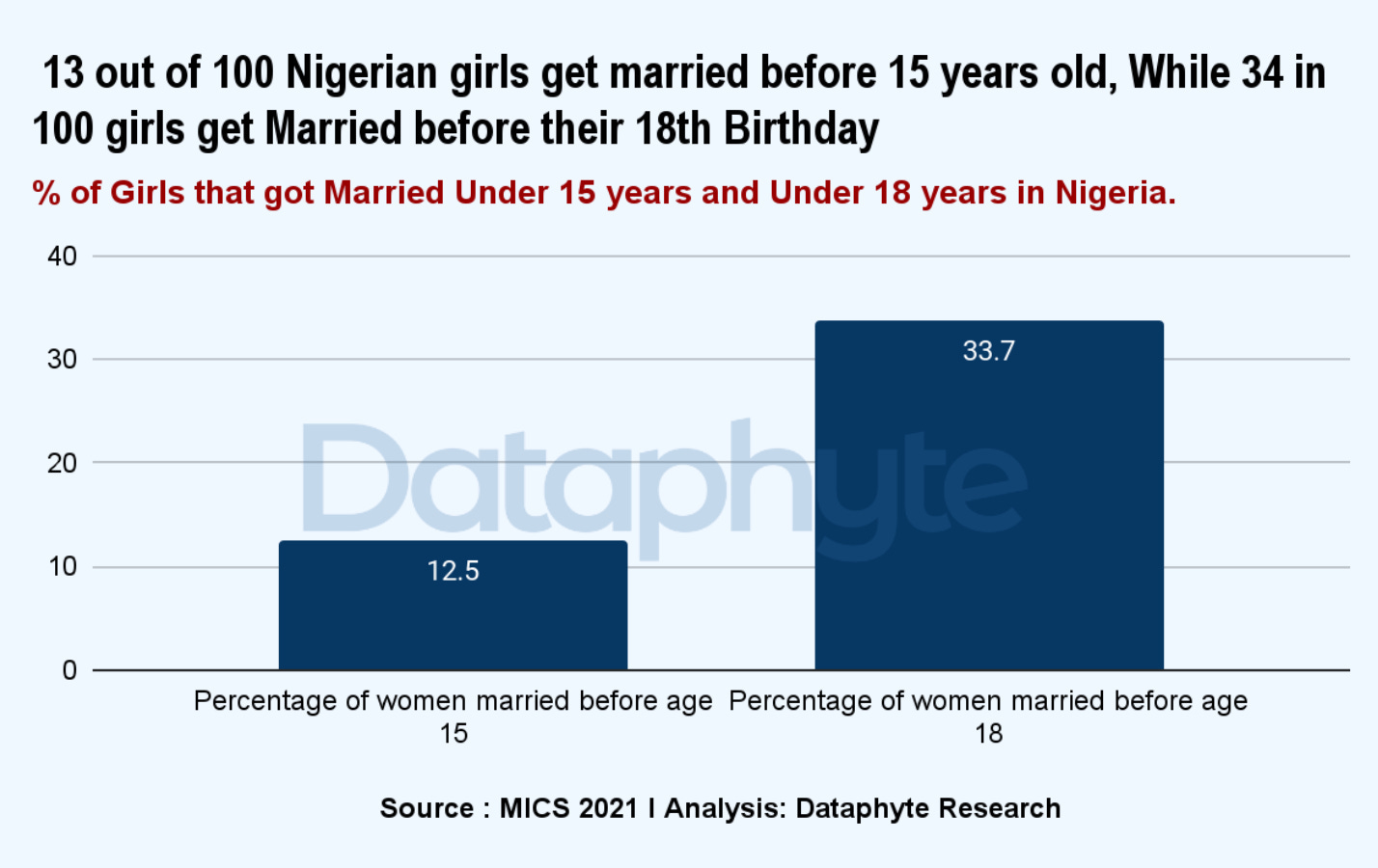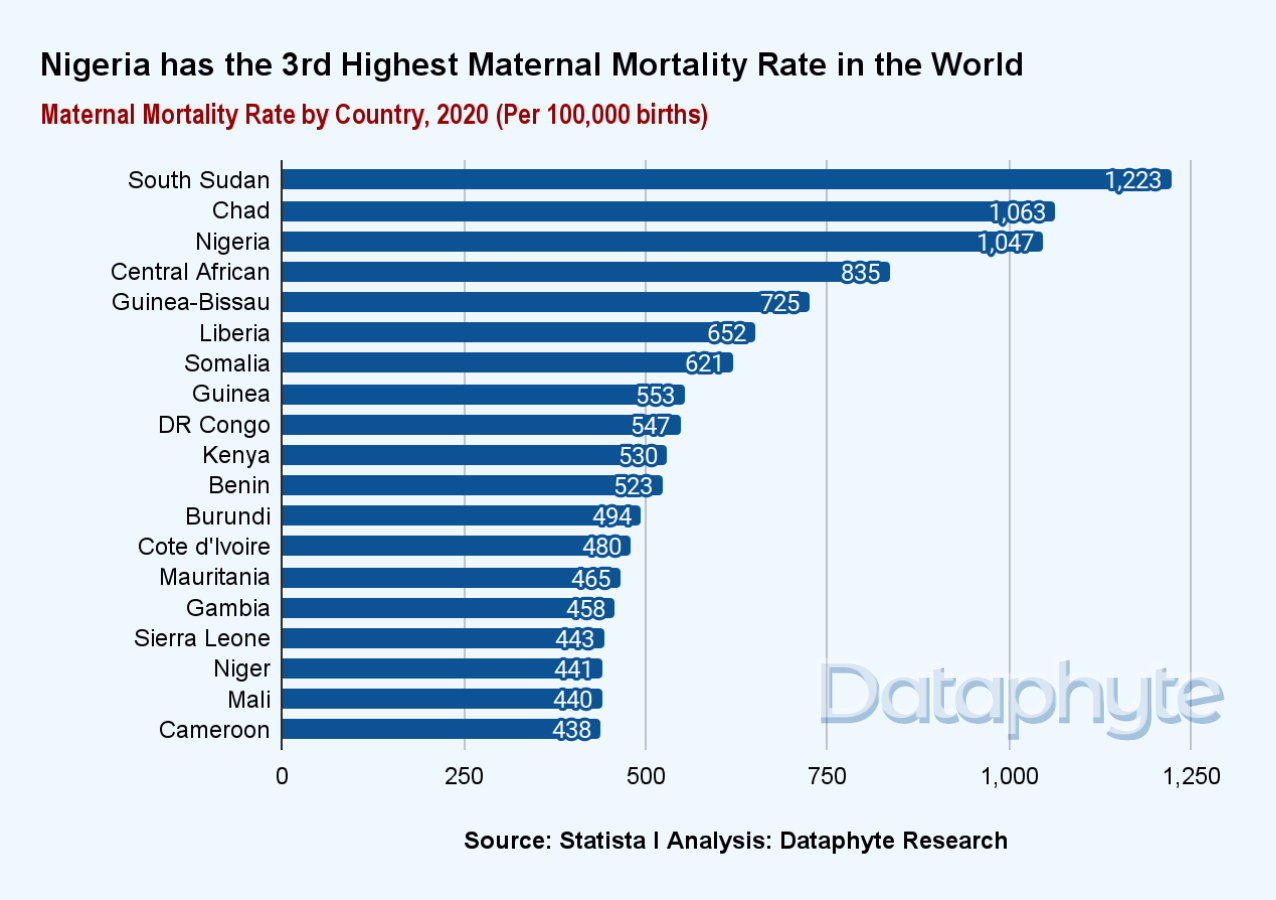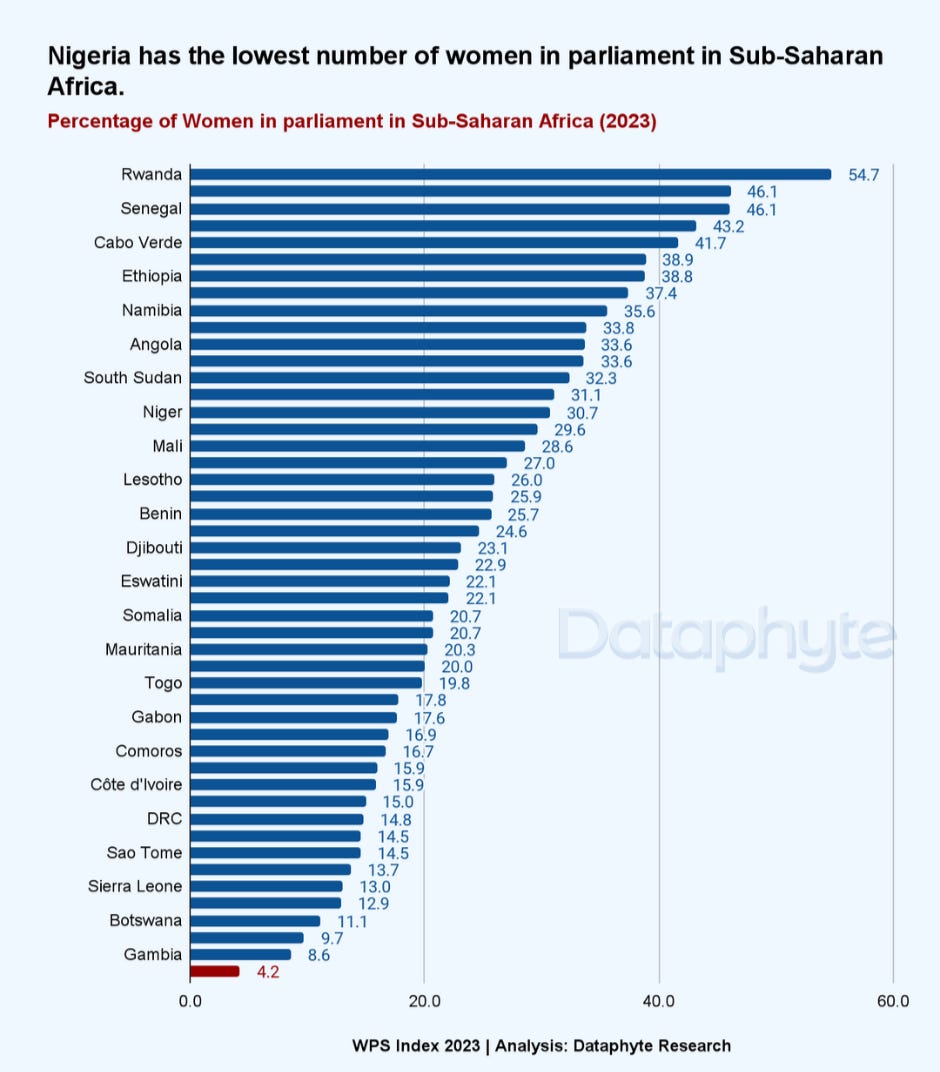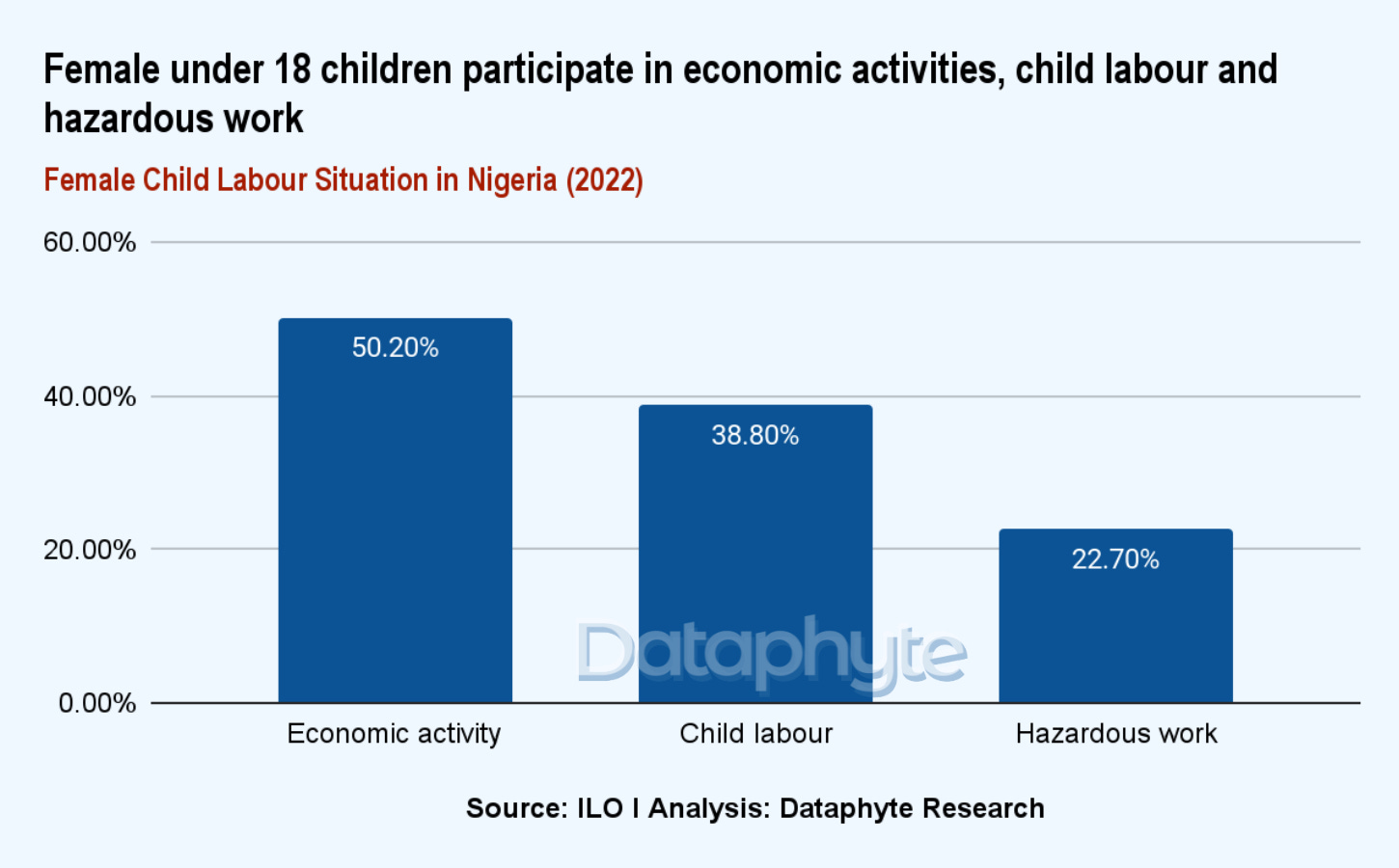October 11th every year is marked as the International Day of the Girl Child. The International Day of the Girl Child is a day set aside to reflect on issues affecting the girl child across the world.
The 2024 theme is “Girls’ Vision for the Future” which is a call for urgent action and persistent hope, driven by the power of girls’ voices and vision for the future.
To mark International Day of the Girl Child which takes place this Friday, we are using this week’s newsletter to highlight some issues facing Nigeria’s girl children with the GIRL-CHILD acronym.
Let’s start from the beginning, with the letter G.
GENITAL MUTILATION
Female genital mutilation (FGM) refers to ‘‘all procedures involving partial or total removal of the female external genitalia or other injury to the female genital organs for non-medical reasons.” Female Genital Mutilation is a violation of girls’ and women’s human rights. In Nigeria, there are more Female Genital Mutilation cases compared to males. About 57% of females were circumcised compared to 54% of the males. This is a barbaric practice that must stop.
INHERITANCE
While developing countries continue to improve economic opportunities for women, inheritance laws remain strongly biased against women and girls in many societies, including Nigeria.
For instance, parental bequests of material wealth and human capital investments represent central forms of intergenerational transfers that affect long-term development in far-reaching ways.
At low levels of development, land is a key asset and an essential source of livelihood. Unsurprisingly, societies have long developed rules to govern how land is transferred across generations. Women in many developing countries face legal barriers preventing them from inheriting property.
In Nigeria, only 7.7% of women aged 20-49 solely own land, compared with 36% of men, according to World Bank research which references various demographic and health surveys in Sub-Saharan Africa between 2010 and 2016.
The ability to own and inherit land is an important driver of economic prosperity. Such a big gap between men and women in Nigeria regarding land ownership suggests systemic economic disparities that will affect efforts at improving gender equality.
RAPE
A child who is the victim of prolonged sexual abuse usually develops low self-esteem, a feeling of worthlessness and an abnormal or distorted view of sex. The child may become withdrawn and mistrustful of adults and can become suicidal.
Violence Against Women and Girls is one of the most widespread, persistent and devastating human rights violations in the world. One in three women experience physical, sexual or intimate-partner violence, are victims of trafficking, or are subject to violent social norms.
Between 2017-2020, the Sexual Assault Referrals Centers (SARC) recorded an increasing number of gender-based violence incidents in Nigeria.
LACK OF EDUCATION
In Nigeria, there is a growing number of out-of-school children in the country. According to the United Nations International Children's Emergency Fund (UNICEF), education is an entitlement of every child regardless of gender.
There are 3.9 million out of school at the primary level and 3.7 million at the junior secondary level. Without the necessary education, girls do not have the knowledge necessary to make informed decisions about their lives. One of the reasons for this lack of education brings us to the C part of this countdown.
CHILD MARRIAGE
According to UNICEF, Child marriage refers to any formal marriage or informal union between a child under the age of 18 and an adult or another child.
In some parts of Nigeria, female children are often exposed to early marriage without considering the mental, physical and emotional implications.
The 2021 Multiple Indicator Cluster Survey, shows the percentage of females who got married under 15 years of age is 12.5% while those married under 18 is 33.7%. These are some of the highest rates in the world.
Early marriage prevents the proper physical, mental and emotional development of young girls, because they are still in the formative stages of understanding themselves, and yet must take care of themselves as well as a husband and children. Whatever hopes and dreams they have for the future automatically takes a back seat to their roles as wife and mother.
HEALTH ISSUES
As girls grow into womanhood, they are exposed to many health-related issues, especially maternal maternity.
Maternal mortality refers to the death of a woman while pregnant. Women die as a result of complications during and following pregnancy and childbirth. According to W.H.O, complications develop during pregnancy and most are preventable or treatable.
The lack of adequate prenatal care in Nigeria means that the country has the 3rd highest maternal mortality rate in the world. Expanding access to better healthcare to women of all income levels is central to addressing this problem. This report highlights one initiative in Ogun State that is trying to reduce maternal mortality.
INCLUSION AND REPRESENTATION
Since women make up half the population, the strong political participation of women is critical for democratic governance.
However, girls and women throughout the world continue to be marginalized in the political sphere due to restrictive laws and institutional barriers, discriminatory cultural practices and low access to quality education, healthcare, and resources.
In Nigeria, there is a low representation of women in the decision-making process. This results in issues that affect women and girls being put on the back burner. For example, various constitutional amendments aimed at improving gender equality failed to pass in the 9th national assembly. This can be linked directly to the low number of women in leadership positions in Nigeria.
Among Sub-Saharan African countries, Nigeria has the lowest female political representation.
Correcting this situation will take time, but it is necessary in order to foster a sense of inclusion by ensuring that all voices are heard when political decisions are being taken.
LABOUR
The term "child labour" is often defined as work that deprives children of their childhood, potential, and dignity, and that is harmful to their physical and mental development. Their involvement in these strenuous activities affects their mental, physical, and social lives and interferes with their education by depriving them of the opportunity to attend school.
Also, it requires them to attempt to combine school attendance with excessively long and heavy work. Often, that is not possible.
The high rates of child labour reflect the precarious economic situation of most Nigerian families. A growing economy should see such rates decrease over time.
DIGITAL GENDER DIVIDE
Access to online activities and opportunities plays a crucial role in the development of children and young people across various areas.
These activities cover a wide range of important aspects, including participating in online educational programs, both formal and informal learning, accessing crucial information and support for health and wellbeing, engaging in creative and cultural activities, participating in civic engagement and expressing personal ideas and opinions, enjoying leisure time with peers, and searching for employment, career guidance, and entrepreneurship opportunities.
Sub-Saharan Africa has among the widest gender gaps in mobile internet use in the world, with over 190 million women not using mobile internet services.
This significant technological gap means that men could also dominate the internet space and reap the rewards first, potentially leaving out women. That is why it is important to close that gap.
Organisations like the GSMA suggest that smartphone affordability, increased literacy and paying greater attention to online harassment could close this gap. These issues affect men as well, but it affects women to a much greater extent.
In summary, being a Nigerian girl child is hard. Obstacles are placed in your path from the day you are born. Opportunities are scarce and so is support. Hopefully the girl children born today can experience a more equitable society.



